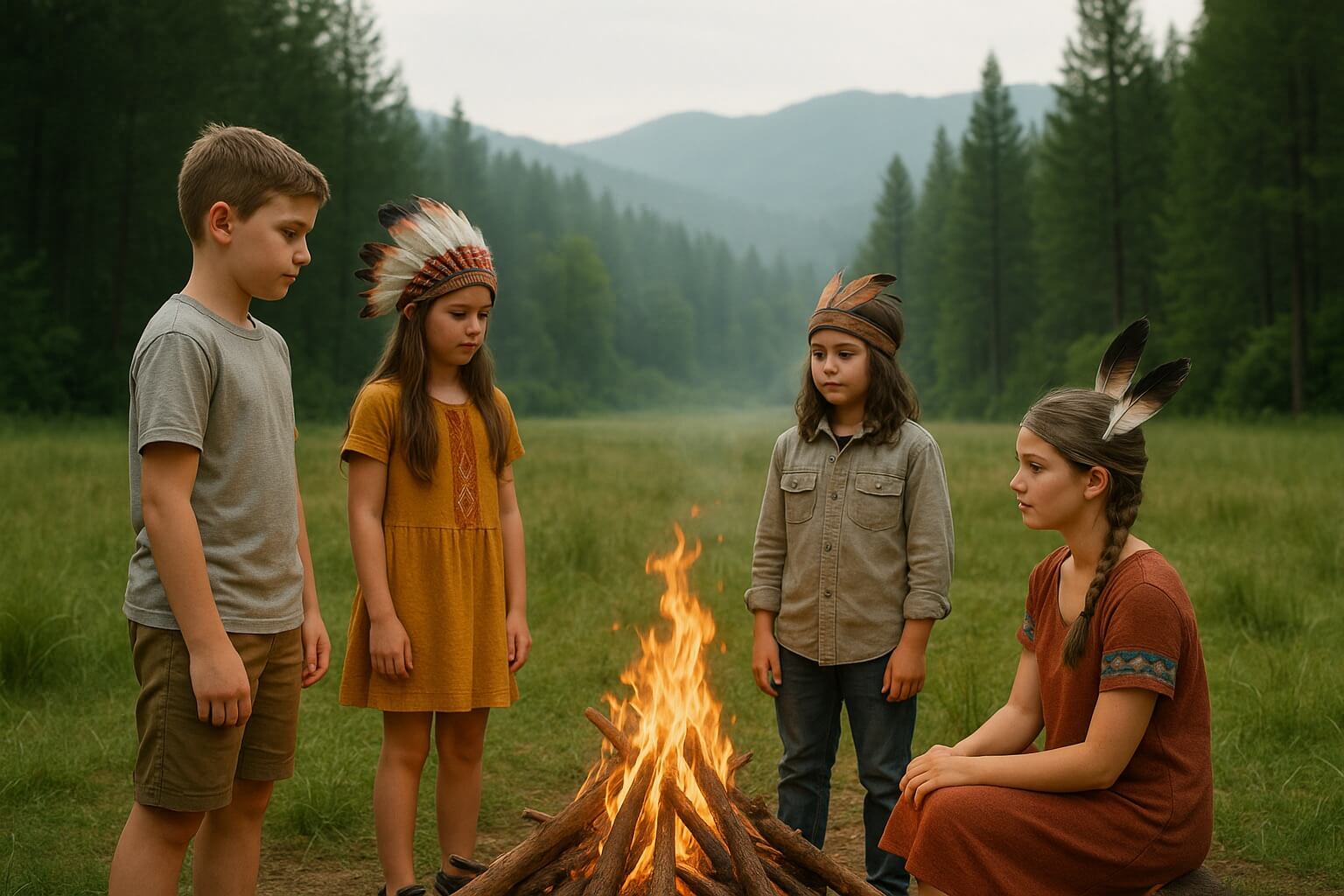Education is a key pillar in the development of any child, but for Native American youth, the education system often needs to reflect their distinct cultural identity and history. Tribal schools, Indian boarding schools, and specialized educational programs play an essential role in making sure that Native American students not only receive a high-quality education but also stay connected to their roots.
Tribal Schools: A Cultural Bridge to Learning
Tribal schools are located within Native American reservations and are designed to integrate both academic achievement and cultural education. These schools allow Native youth to learn about their tribe’s history, language, and traditions, which are often omitted from mainstream curricula. A focus on Native language revitalization, storytelling, traditional arts, and the philosophy of the tribe ensures that children grow up with a deep sense of pride and identity.
In addition to cultural education, tribal schools follow state standards and provide a rigorous academic curriculum. Students are prepared for higher education and career opportunities while maintaining a strong connection to their tribal communities.
Indian Boarding Schools: A Modern Approach to Cultural Education
Historically, Indian boarding schools were designed to assimilate Native children into mainstream society, often forcing them to abandon their language and customs. Today, however, tribal boarding schools are making a comeback with a renewed focus on blending traditional education with academic excellence. These schools serve both as safe havens for Native children and as bridges between traditional and modern education.
Modern tribal boarding schools offer students access to quality education, often featuring extracurricular programs like sports and art classes, while providing emotional and psychological support to deal with the impacts of historical trauma.
Public & Charter Schools: Maintaining Identity While Achieving Success
Many Native American students attend public and charter schools off-reservation, and these institutions are increasingly recognizing the importance of incorporating Native American culture into their curricula. There are specialized programs designed for Native American students, such as language immersion or history courses focused on Native cultures, which help students stay connected to their heritage.
Additionally, many school districts are working directly with tribal communities to ensure that educational goals align with tribal values and that students are not left behind. Programs like Tribal Education Departments work alongside public schools to improve student outcomes.
Virtual Learning Opportunities: A Lifeline for Remote Students
Access to quality education can be a challenge for students living in remote tribal communities. Virtual learning programs have emerged as a solution, offering online educational opportunities that cater specifically to Native American students. These programs allow children in geographically isolated areas to attend classes and receive tutoring without the need to leave their homes or communities.
Specialized Educational Programs for Native American Youth
In addition to traditional educational settings, various specialized programs have been designed to meet the specific needs of tribal youth and ensure their academic success.
Early Childhood Education: Laying the Foundation for Success
The importance of early childhood education cannot be overstated. Programs like Head Start and Tribal Head Start are dedicated to providing preschool-aged children with a strong foundation in literacy, numeracy, and social skills, while also incorporating Native American culture. These programs focus on enhancing self-esteem and cultural pride from a young age.
By ensuring that children begin their educational journey in a culturally sensitive and academically enriching environment, these early childhood programs help set up Native American children for lifelong success.
Scholarships & Financial Aid: Opening Doors to Higher Education
Financial barriers often prevent Native American youth from pursuing higher education. However, there are numerous scholarships and grants specifically for tribal students. Many colleges and universities also have dedicated programs for Native American students, helping them with tuition fees and providing mentoring and career advice.
Tutoring and Academic Support: Helping Students Thrive
After-school programs and tutoring are widely available in Native American communities to help students overcome academic challenges. These services are often designed with cultural sensitivity, ensuring that students do not feel alienated or overlooked in their educational pursuits.
Tribal Youth Camps and Extracurricular Activities
Beyond the classroom, tribal camps and extracurricular programs provide opportunities for Native American children and teens to connect with their culture, build leadership skills, and foster a sense of belonging. These programs are crucial in developing well-rounded, confident young people who can grow into leaders in their communities.
Tribal Youth Camps: Nurturing Cultural Identity and Leadership
Tribal youth camps play an integral role in the development of Native American children. These camps offer youth an opportunity to learn about their heritage through activities such as Native American crafts, storytelling, drumming, and dancing. They also provide hands-on experience in traditional activities like fishing, hunting, and gathering.
In addition to cultural education, many camps focus on leadership development and community service. Teens are taught essential life skills, such as teamwork, responsibility, and communication, which prepare them to become active leaders in their tribes and beyond.
Sports and Recreation: Building Confidence and Teamwork
Physical activity is a key component of healthy development, and many tribal communities offer sports leagues and recreational programs that teach teamwork, discipline, and sportsmanship. These activities not only promote physical fitness but also offer a sense of community and pride. Native youth are encouraged to pursue sports, whether it’s basketball, volleyball, or traditional Native games, helping to keep them engaged and motivated.
Mental Health and Well-being Programs for Tribal Youth
Addressing the mental health needs of Native American youth is critical for their overall well-being and success. Native youth face unique challenges, including historical trauma, discrimination, and poverty, which can negatively impact their mental health.
Counseling and Support Services
Counseling services and mental health programs specifically designed for tribal youth help them navigate these challenges. Many tribal communities offer culturally appropriate mental health services that incorporate Native American traditions, values, and spirituality. These programs provide essential emotional support, crisis intervention, and guidance, helping youth deal with issues such as anxiety, depression, and substance abuse.
Peer Mentorship and Support Networks
Peer mentorship programs are another effective way to support tribal youth. Older teens serve as mentors, offering guidance, support, and positive role models to younger children. These programs foster a sense of community and help teens stay grounded in their cultural identity, while also teaching important life skills.
Get Involved: How You Can Support Native American Youth
The success of Native American youth relies not only on the resources provided by their communities but also on the involvement of allies and supporters. There are many ways individuals can get involved:
- Donate: Contributions to tribal youth programs, scholarships, and camps help ensure these initiatives continue to thrive.
- Volunteer: There are many opportunities to volunteer as a tutor, mentor, or camp counselor, directly impacting the lives of tribal youth.
- Raise Awareness: Spread the word about the unique educational challenges and opportunities faced by Native American youth, and advocate for better support at the local, state, and national levels.
Conclusion
By investing in the education, mental health, and cultural preservation of Native American youth, we are building stronger communities and ensuring a brighter future for generations to come. Whether through tribal schools, boarding schools, youth camps, or leadership programs, Native American children and teens are equipped with the tools they need to succeed academically, culturally, and socially. Together, we can support their growth and create lasting, positive change.





